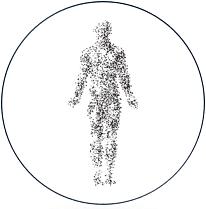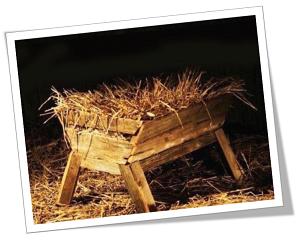The Belgic Confession of Faith Article 18: Of the Incarnation of Christ
The Belgic Confession of Faith Article 18: Of the Incarnation of Christ
The previous article ended with the mother of promises as given by the Lord in Paradise that the Messiah would come in the fullness of time. In this article and several following ones the fulfilment of this promise is shown. Articles 18 and 19 speak about the Person of the Mediator and articles 20 and 21 about the work of the Mediator. Therefore they are articles of the greatest importance, and we wish that the Lord may guide us in writing and reading so that it may be to His honor and, under the administration of the Holy Spirit, to the salvation of our souls.
 Our present article states what we believe of the incarnation of the Lord Jesus, based upon God's Word, and also combats the views of heretics. Previously we have discussed the fall and its terrible consequences for the entire human race. We and all mankind have come into the greatest misery, and it is impossible for us to deliver ourselves. This was foreknown by God and even decreed by Him. This is difficult for many to accept, but it is the truth which we can find in God's Word. God also decreed to make a way that the elect could return to the Lord.
Our present article states what we believe of the incarnation of the Lord Jesus, based upon God's Word, and also combats the views of heretics. Previously we have discussed the fall and its terrible consequences for the entire human race. We and all mankind have come into the greatest misery, and it is impossible for us to deliver ourselves. This was foreknown by God and even decreed by Him. This is difficult for many to accept, but it is the truth which we can find in God's Word. God also decreed to make a way that the elect could return to the Lord.
How could this be done? Christ gave Himself from eternity as a Surety of the Covenant for His people, as the Father required that He assume the human nature and give perfect satisfaction to His violated attributes. The Son was willing to do all that the Father required, also to come on this earth. We read it in this article:
We confess, therefore, that God did fulfil the promise, which He made to the fathers, by the mouth of His holy prophets, when he sent into the world, at the time appointed by Him, His own, only-begotten and eternal Son.
After that first promise in Paradise, many other prophesies followed which gave a clearer picture of the coming Messiah. First it was the seed of the woman, then later the parents of Noah spoke of the Comforter, then it was told that He would be born out of the loins of Abraham, Isaac, and Jacob. Jacob pointed to Judah, Moses called Him a prophet, David waited for his great Son who would sit on his throne. Isaiah might see His priestly office but also that he would assume our human nature, for He said, "For unto us a son is given." Bethlehem was made known as the birthplace. More and more was revealed of the coming Deliverer or Redeemer.
Through all those ages there had been people waiting for Him, longing that He might be born in their time. For four thousand years the "world" waited and waited. It seemed that the Lord had forgotten, but this was not true. It had to become the fulness of time, as all things should be fulfilled in Him – the time, the circumstances, the place, the condition of the country, His person, in everything God's Word had to be fulfilled.
The fulness of time was the time which had been set by the Lord. Had Jacob not foretold that, before the Shiloh would come, the sceptre would not depart from Judah and the Lawgiver from between his feet? This meant that Israel would still be a nation in the fulness of time, which was fulfilled; however, soon afterwards in the year 70, it came to an end. The prophet Haggai had at the time when the foundation of the second temple was laid foretold that it would not be such a nice building as the first temple of Solomon was, but that this temple would have greater glory because the Redeemer would enter into it. This was also fulfilled.
Daniel saw that Christ would come when the 70 year-weeks would be ended. A week has seven days and seventy weeks 490 days, meaning that 490 years would pass by from the exile unto the fulness of time. Then God sent His only begotten Son, and showed His incomprehensible love toward sinful creatures. How great was also the love of Christ to leave His glory and to descend to this cursed earth full of enmity and sin to restore the attributes of the Father, and, at the same time, to merit in a way of obedience the salvation of His church. This is the revelation of God's free sovereign pleasure, which is the only reason of Christ's coming on earth.
It is no wonder that the apostle exclaims, "Thanks be unto God for His unspeakable gift." Even the angels sang of it: "Glory to God in the highest, and on earth peace, good will toward men."
 From the beginning of the New Testamental Church there have been those who denied the incarnation of Christ. Some did not believe in the Godhead of Christ and others speak doubtfully about his body, His human nature. For many it is difficult to comprehend that the Mediator could be very God and real righteous man at the same time. This is not so difficult if we keep in mind that the second Adam, Christ, was to perform what the first Adam did not do. The Lord required of Adam that he keep the law, and therefore Christ had to keep the law. "This do and thou shalt live." The Lord also warned Adam that if he ate of the forbidden fruit, he would be punished with the threefold death. Because he sinned, it was necessary for the Mediator to give satisfaction for His people. God's justice required that the same nature which had sinned should be punished, and therefore Christ had to be man. If He Himself had sins, then He would have to pay for his own sin, and therefore He had to be a righteous man.
From the beginning of the New Testamental Church there have been those who denied the incarnation of Christ. Some did not believe in the Godhead of Christ and others speak doubtfully about his body, His human nature. For many it is difficult to comprehend that the Mediator could be very God and real righteous man at the same time. This is not so difficult if we keep in mind that the second Adam, Christ, was to perform what the first Adam did not do. The Lord required of Adam that he keep the law, and therefore Christ had to keep the law. "This do and thou shalt live." The Lord also warned Adam that if he ate of the forbidden fruit, he would be punished with the threefold death. Because he sinned, it was necessary for the Mediator to give satisfaction for His people. God's justice required that the same nature which had sinned should be punished, and therefore Christ had to be man. If He Himself had sins, then He would have to pay for his own sin, and therefore He had to be a righteous man.
How could the holy Divine nature of Christ be united with an unholy human nature? That was impossible. However, it was not enough that Christ was real righteous man, but He should also be very God. Why? Because a Mediator who was only a man, though righteous, could never bear the wrath of God, could never give an eternal value to his work, could not lay down his life and take it again, could not say, "It is finished", and could not apply his merits to the hearts of the elect. If we consider all these things, then we will understand that the Mediator must also be very God.
Such a Mediator we need, and I hope that among my readers there are found those who have been longing for the coming of Christ in their hearts. It is a great wonder when the Lord has revealed Himself in our lives, but always He has to be the first again.
Therefore that longing remains with the church. How wonderful are the ways of the Lord, both in His coming upon earth and in the hearts of His children. May it also happen to you!
In this article we read, "Who took upon Him the form of a servant, and became like unto man, really assuming the true human nature, with all its infirmities, sin excepted."
It is written here that in the fulness of time the second Person of the Divine Being assumed a human nature, which is an impersonal nature. He is one Person in two natures. If we deny this, then we deny the glory of Christ as Mediator. He assumed a true human nature, but He did not become a human person, as then He would be in Adam. Sometimes we hear the question: Was Christ a human person? There is only one Mediator, and, if the Lord Jesus was a human person, it would mean that the sin of Adam would be His sin. Therefore the second Person in the Divine Being has not assumed a human person, but a human nature which does not take part in the debt and pollution of Adam.
The confession speaks about a true human nature. This is not only flesh and blood, but also a human spirit or mind. How this unity existed and continued is a mystery, but it is according to the Word of God. In John 1:14 we read, "And the Word was made flesh, and dwelt among us, (and we beheld His glory, the glory of the only begotten of the Father,) full of grace and truth." Paul says of it (1 Timothy 3:16), "God was manifested in the flesh." Notwithstanding these texts it remains a mystery which we cannot comprehend. When Paul says elsewhere that Christ made Himself of no reputation, it does not mean that Christ destroyed His Divine nature; no, it means that He hid His Divine nature, so that it did not show as much.
Thus the second Person in the Divine Being assumed our human nature, and was subjected to all infirmities. It was not the same nature which Adam had in Paradise, but was weak just as all people are. In Romans 8:3 we read, "God sending His own Son in the likeness of sinful flesh." The consequences of sin were felt in the body of the Lord Jesus, being hungry, thirsty, tired, sad, and He also wept. When infirmities are spoken of in His human nature, then we may not think that His human nature was polluted by sin, for this is not true. He became like unto man, sin excepted.
It is also explained here how the Lord Jesus assumed our human nature, which is important, as there are so many errors about this. Our confession says, "Being conceived in the womb of the blessed Virgin Mary, by the power of the Holy Ghost, without the means of man." When the incarnation of the Lord Jesus was announced to Mary, the angel said, "The Holy Ghost shall come upon thee, and the power of the Highest shall overshadow thee." Our article also says that it was without the means of man, so we may not think of a natural conception. The angel spoke of a shadow, and a shadow gives darkness, which means that we should not try to explain it. Under the power of the Almighty Mary was impregnated; the same Spirit protected the fruit in her that it would not be polluted by sin, since Mary was also a sinner.
Thus the Lord Jesus was conceived in the Virgin Mary, and at the set time came into this world, born just as each child is born. The Virgin Mary remained a virgin during her pregnancy. Christ assumed flesh and blood of the Virgin Mary and did not bring His human nature from heaven as the Anabaptists teach. Our article states that Christ is the true seed of Mary. How Christ was conceived cannot be explained by us, for it is beyond our comprehension. But is anything too wonderful for the Lord?
 Christ was born without any sin, without original sin. And it was necessary that He possessed our human nature, for otherwise He could never be our kinsman. The Old Testament speaks of these kinsmen, and who should belong to the family which he helped in poverty and in need. Likewise it is the work of Christ to bring back what we have lost, but then He should belong to our family, the human race.
Christ was born without any sin, without original sin. And it was necessary that He possessed our human nature, for otherwise He could never be our kinsman. The Old Testament speaks of these kinsmen, and who should belong to the family which he helped in poverty and in need. Likewise it is the work of Christ to bring back what we have lost, but then He should belong to our family, the human race.
The confession also says something of the soul: "And did not only assume human nature as to the body, but also a true human soul, that He might be a real man. For since the soul was lost as well as the body, it was necessary that He should take both upon Him, to save both." A true human nature has soul and body, and so the same was assumed by Christ in order to be a perfect Saviour of soul and body. When there is written that Christ was without sin, then it means that He was a holy man. Therefore it can be said of the Mediator that He was a real righteous man, but also very God.
What a blessing it is when we may learn something of these facts, not only with the mind, but taught it under the administration of the Holy Ghost. This must become an experiential knowledge in order to have the comfort of it. Such a Mediator then becomes precious and beloved to a poor sinner who has learned that he cannot do anything to his own salvation. They may rejoice in the only Name given under heaven to salvation. There is no life outside of Him; He is altogether lovely. In Him only there is salvation, for He is the Way, the Truth, and the Life.
We should not forget that Christ will only be of value for a person who has learned that he is a sinner. As long as we have no knowledge of this, then there is no need in our life for the Mediator. What a blessing it is when we may come to the end with ourselves, and cannot miss Him any longer. By the light of the Holy Spirit we may then see that great gift of God in sending His beloved Son. The shepherds heard it; "Unto you is born." It became so personally, which it should also become for us.
Young people, may the Lord work it in our hearts. When sin becomes an unbearable burden in our lives, we will cry unto Him that He may deliver us. The Lord hears the cry of poor sinners and encourages them to rail unto Him. Use, with a praying heart, the means of grace which the Lord has given.

Add new comment